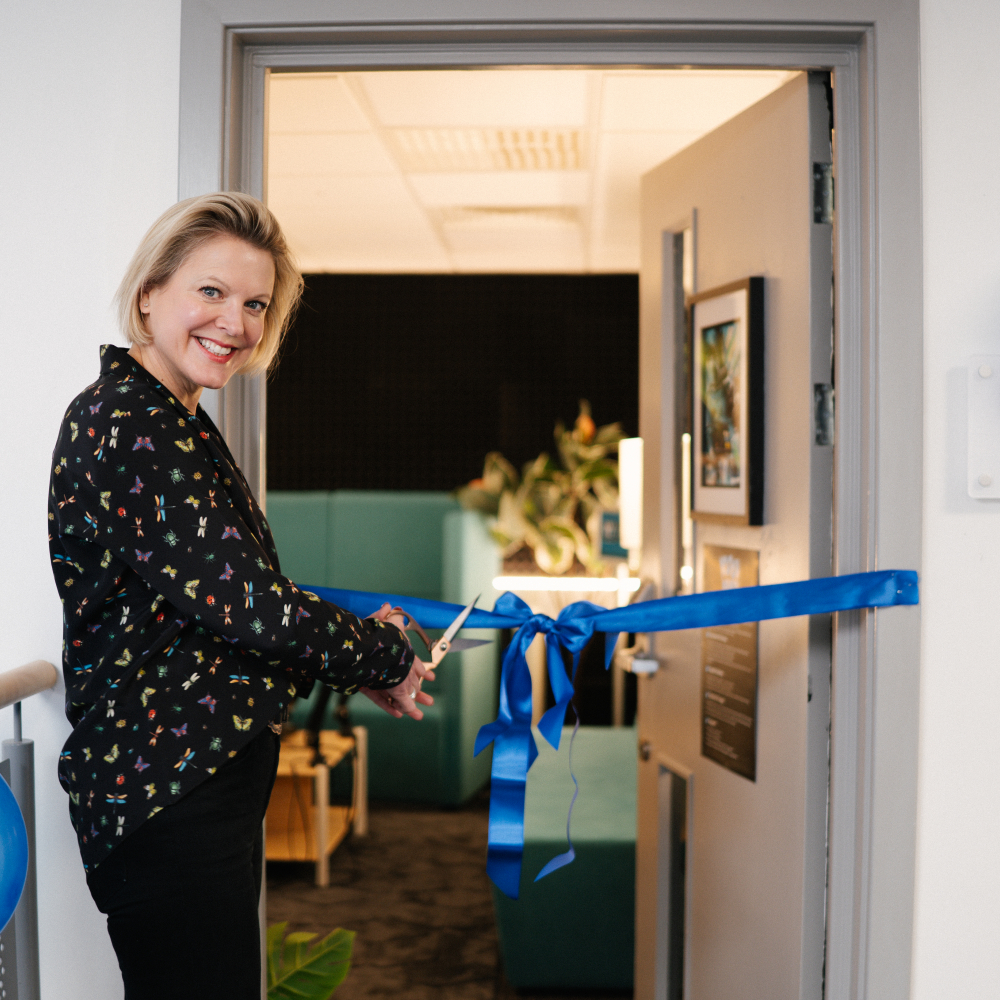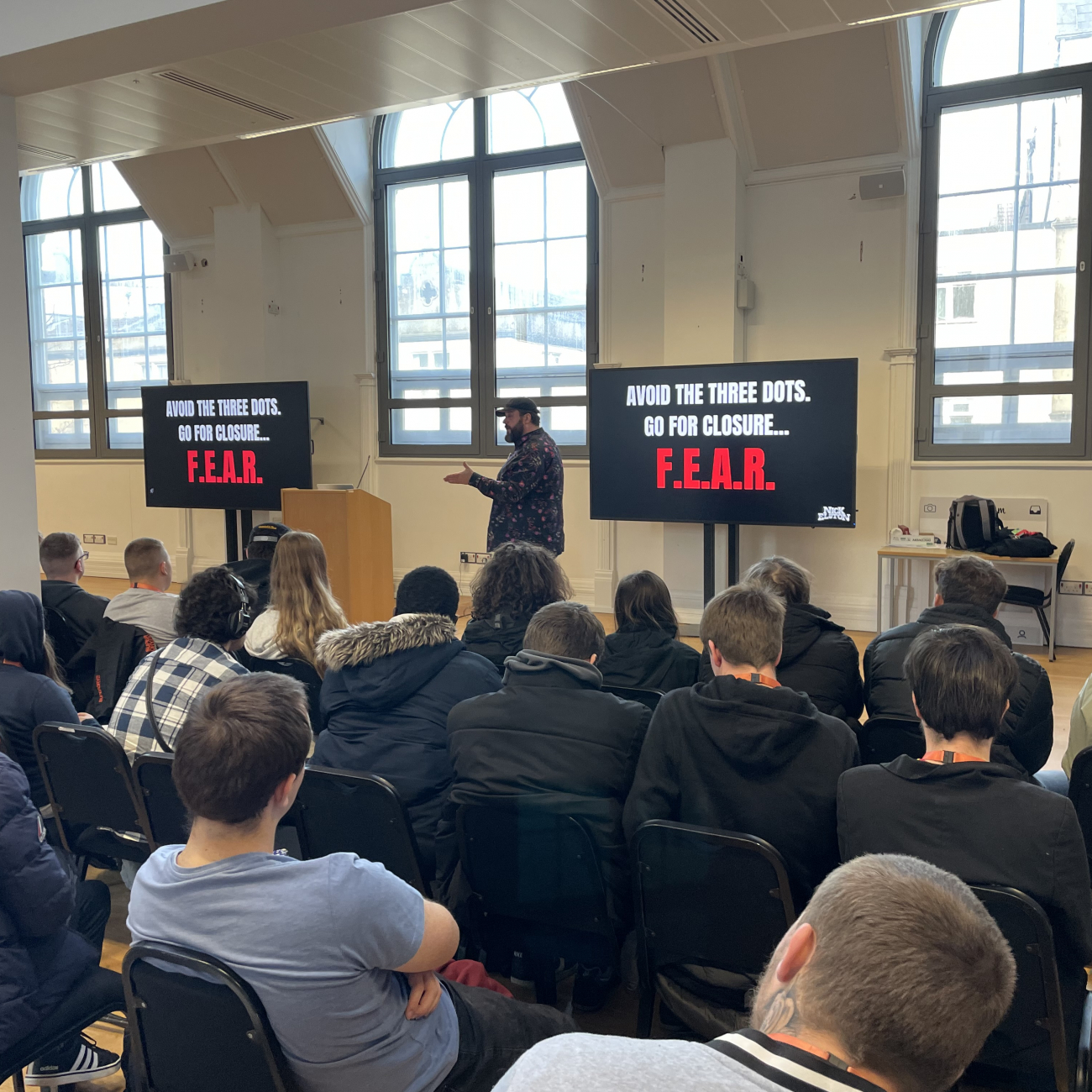
Weston College – ‘The pioneering college brave enough to tackle suicide issues head on’

Cuts to local youth and mental services means that for many young people, their college is the only place to turn at times of mental health crisis. FE Week investigations reporter Jessica Hill visited us to find out how colleges, and their staff, are providing life-saving support for students. Take a read of Jessica’s report below:
FE Week Report by investigations reporter Jessica Hill:
Without the support he received from welfare staff at Weston College, 24-year-old James Lockyer does not believe he would still be alive today. He is now an apprentice support worker at the college but, when James was a teenager, he hit such a low one night that he deliberately drove his car as fast as he could with the headlights off.
“Talking to the College counsellors made a difference after that,” he told FE Week.
Weston College last year became the first in England where all welfare, pastoral and specialist mental health staff have a suicide first-aid qualification – including James Lockyer.
The six-hour suicide first-aid course taught James how to help the one in four post-16 students who, like him, have experienced suicidal ideations, and the language he might use to keep them alive in that crisis moment.
While colleges have sometimes been wary of focusing on suicide, Weston College is “not afraid” to broach the topic with students, says assistant principal Benjamin Knocks. “There is a myth that if you talk about suicide, you’re encouraging people – that’s not the case”.
In 2019 it was the first college to sign the Association of Colleges mental health charter – since signed by around 90 per cent of colleges – committing to prioritise tackling mental health issues.
Ben says the College is putting mental health “front and centre, and the knock-on effect is that our students are responding positively to it. It has not increased those tragic incidences we’ve had.”
Weston has not had a student take their life for at least the past two years, although it had six attempted suicides requiring urgent medical attention in the first two weeks of this academic year.
Demand for support is rising; Weston’s welfare team saw over 2,000 student interventions for the first time in 2021-22 – up over 70 per cent on pre-pandemic 2018-19.
But its approach now means mental health support is not just the domain of specialist staff but wider faculty too. Just over half the college’s 800 staff have completed a mental health first-aid course since 2020, and the goal is for them all to do so.
Weston’s mental health lead Georgie Ford has just finished a PHD in mental health in FE, fully funded by the College, which has informed its evidence-based approach.
The research indicates that 96 per cent of students would approach a tutor first over pastoral support when their mental health suffers.
But Georgie realised tutors were “really afraid of suicide, because nobody wanted to say the wrong thing”.
“We needed to change our approach and make sure every tutor is at least OK to have that initial contact and knows what they could say to a suicidal student.”
Georgie believes that, without suicide training, the “danger” is that staff “start Googling things to help students, and we don’t want people doing things that aren’t demonstrated to be effective. The accountability on that staff member then rises hugely.”
Nonetheless, the suicide course was introduced last summer with a “really quiet pilot run, because you don’t know how it’s going to sit”. It now has a waiting list and has since been introduced at colleges within Greater Manchester Colleges Group too.
The “whole college” approach seems to be working; 94 per cent of Weston’s students told a recent survey they feel the College supports them with their mental health.
Georgie believes the courses boost staff wellbeing too, because they “take the fear out” of talking about suicide.
The number of staff absences around mental health and wellbeing has “quite drastically” reduced, Ben says, “probably as staff start to understand some of those triggers”.
Evidence and intervention
Weston’s approach is underpinned by data gathered in a student wellbeing survey taken by two-thirds of students in the first term, which is used to deliver targeted tutorial packages.
“If a subject area comes back with a low average score on, say, how physically healthy they are, our student enrichment team would do a specific programme in tutorial time around getting them active,” Ben explains.
It also has an annual “celebration of success” to recognise students who have achieved “against all odds”, and a student-led wellbeing conference is in the pipeline.
Celebrity clout is also used to engage students. The UK ambassador for mental health and former Love Island contestant Dr Alex George provided Weston with his top wellbeing tips, which were promoted on social media channels.
And influencer and anorexia survivor Hope Virgo did student sessions and made webinars for tutorials on key wellbeing themes, which the College knew from its survey were affecting students.
Knocks admits that Weston’s welfare team of nine, including six counsellors, is “not enough” to meet all its students’ mental health needs. Partnerships with NHS services and charities including the Anna Freud National Centre for Children and Families and YoungMinds have been “vital”.
Ben highlights the importance of “getting the language right” around suicide – which means not talking about “committing or failure to commit suicide”.
“We don’t want to criminalise it, we want to talk about how students have ‘lost their lives’ or ‘lived through an attempt’.”
Weston has also partnered with Gateshead College to set up a 24-hour helpline for students so that help is available for them out of hours.
Whereas previously staff were unaware they could speak to a GP on behalf of a student with their consent, now they are asked to record concerns with GPs who work closely with the college to “work out next steps”.
The support for students requiring intervention can be bespoke: When a student who did not have family support was recently taken into hospital at 11pm, Weston’s Principal and Chief Executive, Sir Paul Phillips, accompanied her to hospital and “made sure she was secure,”. Then the college ensured she had support at her lodgings when she came out.
‘Postvention’ – in the aftermath of suicide
Georgie says there is “still really little out there” for the suicide bereaved. While colleges are “really good at prevention”, postvention is being “left so far behind” – and the after-effects of suicide “just ripple and ripple”.
Ben knows this ripple effect first-hand having visited the home of a student who had taken their life. He recalls it as “really sobering and harrowing”.
The student had been in a relationship with the biological daughter of his foster parents and, as Ben walked in, the family were in “very different stages of shock and entering grief”.
“The mum was devastated. The father, and brothers weren’t necessarily in shock, but they hadn’t come to terms with it – they were trying to make light of the situation to keep spirits up.
“It was uncomfortable. But they continued to engage with the College and we ended up having continual support put in place for them and the wider family who were college students.”
Weston has started working with North Somerset Council on a community-wide approach to postvention, which Georgie describes as a “real agenda for change”.
Ben believes it is essential at the postvention stage that there is a focus on the impact on staff.
Weston has its own staff welfare officer who is separate to the rest of the welfare team, and all its welfare staff have mandatory one-to-one counselling. Ben says this helps staff “shut the door on it when they go home – otherwise it will consume them”.
The rising tide of mental health issues
As a national leader of further education, the Principal and Chief Executive, Sir Paul Phillips Phillips observes “all colleges struggling to cope with the sheer demands of learners’ mental health”.
One in four 17 to 19-year-olds in England had a probable mental disorder in 2022 – up from one in six in 2021, according to an NHS Digital report. But the waiting time for the NHS’s CAMHS support is around 18 months in Weston-super-Mare and up to 24 months elsewhere.
Sir Paul believes that, if Weston had to rely on services outside the College, “frankly we would have far more casualties of the system. That support network isn’t there anymore. It falls on the college to provide it.”
Richard Caulfield, senior policy manager for Greater Manchester Colleges Group and former mental health lead at the AoC, recalls a health colleague remarking how all his CAMHS referrals used to come from youth services. Now they come predominantly from colleges, because “those other safe spaces for young people no longer exist. It puts a heavy burden on colleges.”
Weston’s research shows the reasons its students have for attempted suicides are related to trauma, relationships, sexual identity, bereavement by an experience of suicide, bullying and peer pressure and physical health.
Sir Paul also blames the impact of Covid for “lots of young people” starting college with “very limited school teaching and an estimated grade which was totally inaccurate”.
“They were almost being guided towards the wrong career route for them, and that causes a lot of despondency and issues we had to watch.”
Future pressures
Sir Paul believes the cost-of-living crisis, rising numbers of students with complex needs and no government funding increases are creating a “perfect storm”. Weston’s ability to keep providing the same level of welfare support amid these challenges depends on its ability to continue generating profit from commercial work, which is currently reinvested into those services.
Sir Paul is “concerned” that “businesses will invest less and less in training because of the economic crisis”. But Caulfield warns that colleges “cannot afford not to invest in mental health”.
“Investing early can save colleges costs later down the line. There’s a financial benefit in retaining students, we’ve got to show that. But there are tough choices for colleges, and we will see an impact over the next year or two.”
Some colleges may be tempted to cut back on face-to-face support but leave digital options in place.
But Mandy Lee, student welfare manager at Weston, warns: “You need that face-to-face interaction to find out what’s really going on for these learners. Our principal really understands that – we’re lucky they listen.”
But Mandy admits that, even with a large team, there are times when they are “so busy, I’m worried when we don’t see someone there and then. We’re down to about 20 minutes per learner to see them all in a day. It’s hard when you’ve got someone who is suicidal, you can’t be looking at the clock and writing down notes.”
For Weston student Ellie Merritt, 21, who suffers with anxiety, ten minutes is all she needs with a member of the welfare team some days.
“There are times where I walk into college and I just I’m overwhelmed with all the other things going on at home. I know that welfare is a safe place, and I’ve gone there and just cried my little heart out for ten minutes. Then I can go back and do my work.
“Sometimes all you need is that time with someone you trust and can talk to, to really motivate you for the rest of the day.”
Read the report on FE News here The pioneering college brave enough to tackle suicide issues head on (feweek.co.uk)







